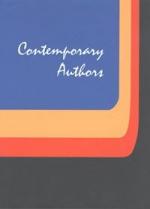|
This section contains 2,685 words (approx. 9 pages at 300 words per page) |

|
SOURCE: “Husserl and Analytic Philosophy and Husserlian Intentionality and Non-Foundational Realism,” in Philosophy and Phenomenological Research, Vol. LII, No. 3, September, 1992, pp. 725-30.
In the following review of two books on aspects of Husserl's thought, Sokolowski provides a comprehensive view of the state of the understanding of Husserl's thought at the end of the twentieth century.
The wish is often expressed for works that would bridge the gap between “continental” and “analytic” thought. The two books under review richly fulfill that wish, and they do so in different ways. Cobb-Stevens' volume [Husserl and Analytic Philosophy]1 is wide-ranging, Drummond's [Husserlian Intentionality and Non-Foundational Realism]2 concentrates on a more particular topic.
The center of Cobb-Stevens' book is an exposition of Frege's thought as seen through Husserlian categories. Cobb-Stevens observes that Frege, like Husserl, rejected psychologism, but was not able to explain the being or the origins of propositions. Frege also failed...
|
This section contains 2,685 words (approx. 9 pages at 300 words per page) |

|


